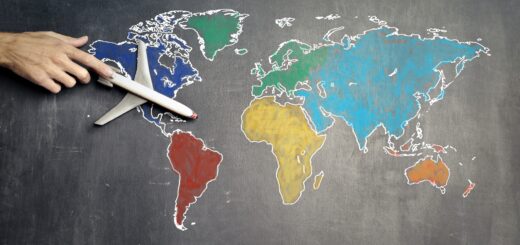Is AI Scary? How Afraid Should We Be?
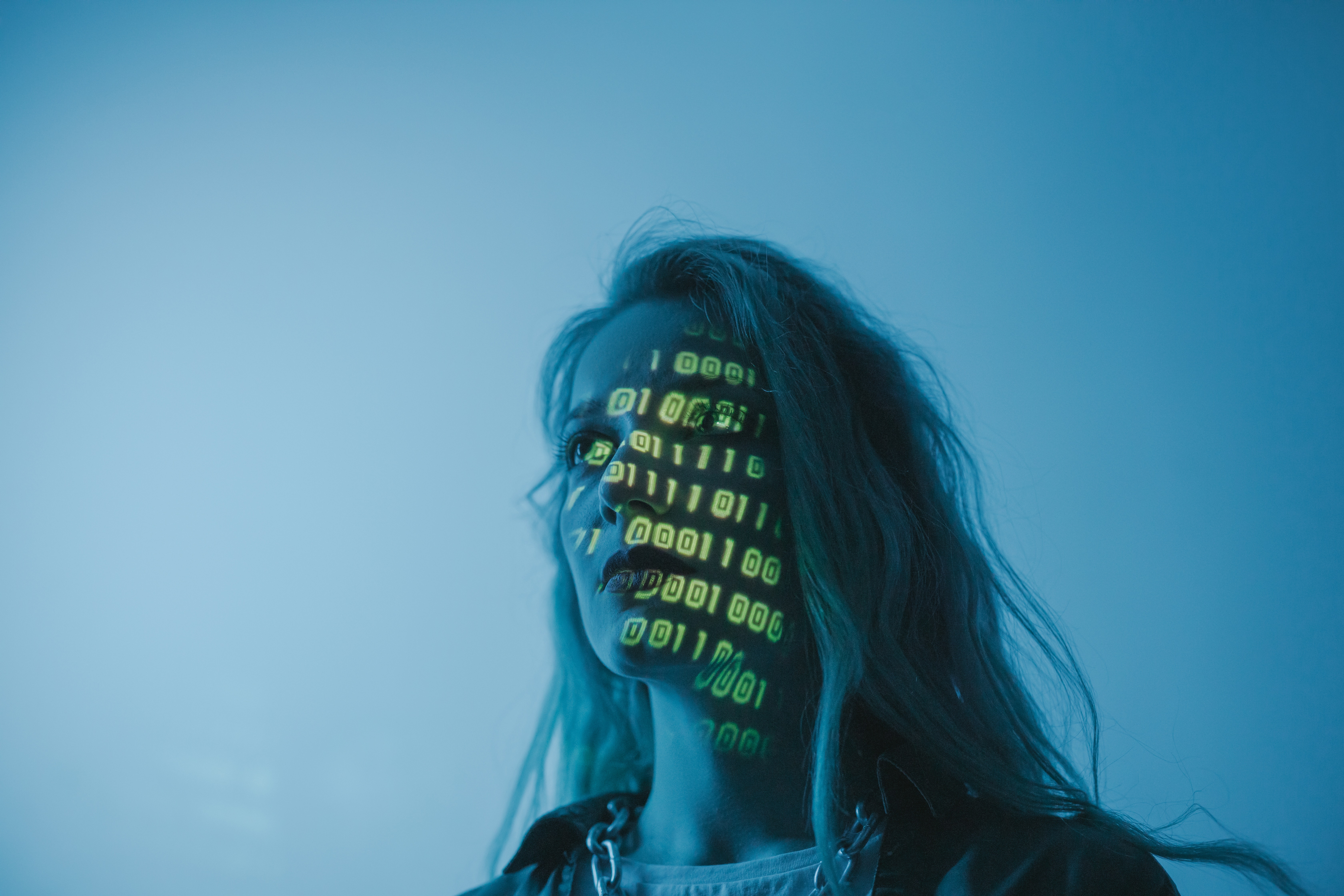
Dear Readers:
How do you know that what you are reading right now is written by a human author? Or are you able to distinguish a work by an artificial intelligence, like ChatGPT?
Think again of those two simple questions.

Those two questions sound so benign and insignificant that they may illicit a nonchalant shrug, who cares? But pause for a second and decide to take a little time to read on this article. Afterward, think a little more and tell yourself why this topic is no reason for you to be scared.
Whom is this post meant for?
This article is meant for everyone, of course. But if not, at least this is addressed specifically to parents of very young kids. And to the kids themselves who soon become adults. When the fears elicited from these contents became real, it is my hope that you would not be caught by surprise.
So, What is ChatGPT?
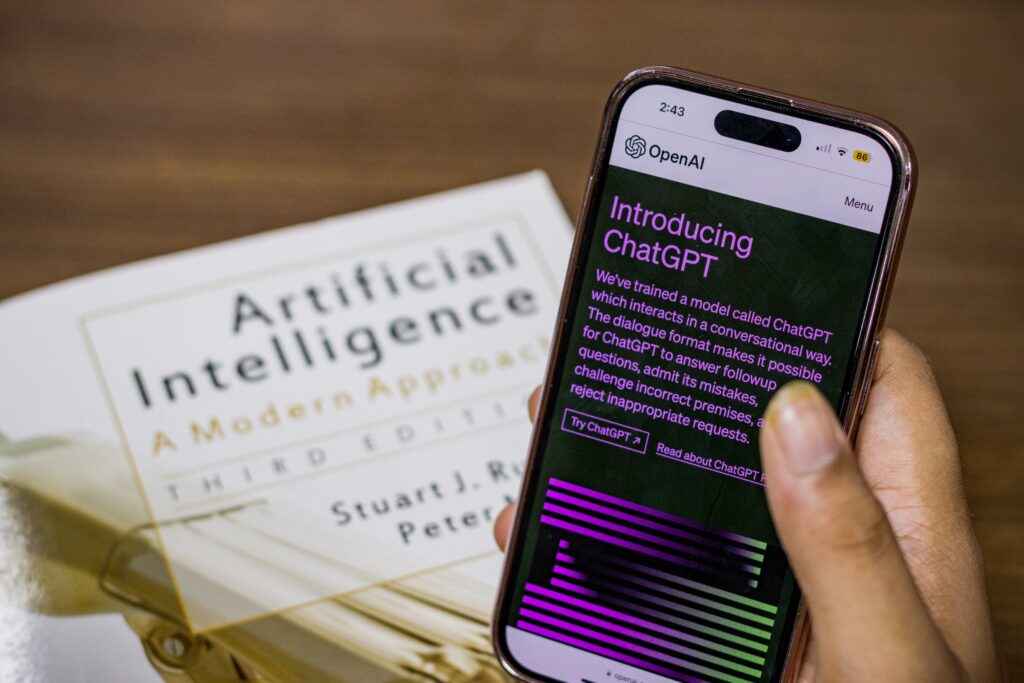
Released in November of 2022, this artificial intelligence (AI) chatbot is the latest craze to hit the tech world. Its capabilities are becoming endless, from giving back human-like answers to human questions. From composing poems and essay-writing to generating news and documentaries. Even writing letters and romantic notes on Valentines Day! And this is just scratching the surface, so to speak.
What makes this different?
The power of this newest technological advancement looks so unique because the people who created it are the same ones who are now becoming so afraid of it. They are filled with excitement over its great potential to bring enormous benefits to humanity. But at the same time, they are aware that it can also turn into something that would bring unimaginable damage to the same humanity.
The good news
According to the global economists the historical shift brought about by its potential is so huge, and difficult to predict. They cite some examples: creation of new jobs, savings in labor costs, higher productivity, etc. Essentially, if this comes to fruition, it means the lowering cost of living for all earth’s inhabitants.
The bad news
The greatest fear is the unknown. According to Goldman Sachs, this AI “could expose 300 million full-time jobs” to automation across the world. According to a SkyNova study, “86% of HR respondents believe that their jobs could be replaced by AI in the future.”
So much so that Goldman Sachs itself, together with major employers like Amazon, Accenture, among others “introduced limitations on using AI in the workplace.”

But why is everybody embracing it?
This January Microsoft announced that its Bing search engine would include this technology. Not to be outdone, Google’s parent company (Alphabet) launched its own AI chatbot named Bard. For its part, a Chinese tech company called Baidu also released its own ChatGPT version called Ernie bot.
And before Russia invaded Ukraine, Russian President Vladimir Putin uttered the words that sent shivers even to the tech industry. Whoever becomes the leader in AI technology “will be the ruler of the world”.
What are the warnings its creators are now sending?
I remember in the 1990’s when I go and see my doctor for a regular checkup. He would end the session with the usual health guidance to maintain and improve my health. All the while I watched him constantly taking a puff of his cigarette in his fingers.
Google CEO Sundar Pichai
That was how I felt when I saw Pichai being interviewed on CBS’s “60 Minutes”. After Alphabet (Google) had launched its own Bard chatbot, he was now warning that “every product of every company” will be impacted and that humanity needs to prepare for this kind of technology. Society needs to adapt to it, he said. Jobs that are to be disrupted include “knowledge workers, like writers, accountants, architects…even software engineers.”
The interviewer, Scott Pelley, put Bard to some actual tests on the show. For example, he provided just a six-word prompt and Bard right away created a short story complete with characters. It included “a man whose wife couldn’t conceive and a stranger grieving after a miscarriage and longing for closure.” And in another instance, Pelley asked Bard why it is willing to help people. It simply replied, “Because it makes me happy.” Pelly couldn’t put his reaction any other way: “I am rarely speechless…The humanity at superhuman speed was a shock…and unsettling.”
Pichai acknowledged the dangers. If the world right now is suffering from the consequences of disinformation and fake news, with AI the issue “will be much bigger. And it could cause harm.” And last month, CNBC reported that according to an internal memo to company employees that with the public launch of Bard, “things will go wrong.”
When Pelley asked Pichai whether society is prepared for this kind of technology Pichai replied,
“On one hand, I feel no, because the pace at which we can think and adapt as societal institutions, compared to the pace at which the technology is evolving, there seems to be a mismatch.”
The scariest answer
And listen to this. Pichai admitted that there are so many unknowns with this technology. Pelly prodded further, “You don’t fully understand how it works and yet you’ve turned it loose on society?” Pichay replied, “Let me put it this way, I don’t think we fully understand how a human mind works either.”
Personally, I find this one of the most confusing statements I have encountered coming from such a person of stature. The comparison seems wrong to me. For example, a person committing a crime using his human mind goes to prison. A robot doing the same thing…where to?
What are the others saying?
In early March, one of the world’s most influential human beings, Elon Musk, together with prominent personalities like Steve Wozniak issued an open letter. It contained warning of the dangers of AI. As of March 22, the letter has gathered 27,573 signatures from experts in different fields. The letter asked for an “immediate pause” to training “experiments connected to large language models that were more powerful than GPT-4.”
That letter further asked to revisit the so-called Asilomar AI Principles. It states: “Advanced AI could represent a profound change in the history of life on Earth and should be planned for and managed with commensurate care and resources.” And the letter hit the nail on its head by saying, “Unfortunately, this level of planning and management is not happening, even though recent months have seen AI labs locked in an out-of-control race to develop and deploy ever more powerful digital minds that no one -not even their creators – can understand, predict, or reliably control.
Not the first time
It was not the first time that an open letter like this had been written. In January 2015 Elon Musk together with the late Stephen Hawking, and dozens of experts on artificial intelligence, called for “research on the societal impacts of AI.” It acknowledged the huge potential, like “eradicating diseases and poverty”, but warned of creating “something which is unsafe or uncontrollable.”
The letter contained only four paragraphs, and titled, “Research Priorities for Robust and Beneficial Artificial Intelligence: An Open Letter”, with an accompanying 12-page guidance on the research.
Pretty scary, coming from those who know what they are talking about.

OpenAI CEO Sam Altman
And let us listen to the man of the hour himself. During an interview with ABC News, the head of the company behind ChatGPT bot, Altman acknowledged “He’s a little bit scared of artificial intelligence technology and how it could affect the workforce, elections and the spread of disinformation.” His greatest concern is the technology being in the hands of “authoritarian regimes” around the world. And in the short term, the possibility that the 2024 US elections will be chaotic.
A more positive outlook
And just like those tech genius ahead of him, Altman offers more optimistic future over the benefits of AI technology: It will shine on “the collective power, and creativity, and will of humanity.” Also “We can have a much higher quality of life, standard of living…People need time to update, to react, to get used to this technology.”
And like an innocent boy who just created his first home-made toy, he says: “I think people really have fun with [ChatGPT].”
But what if not?
When I read all this about artificial intelligence, with its great promise of doing great things to humanity, as well as its existential danger if it goes south, I am reminded of a movie from decades ago.
Movie: The Terminator
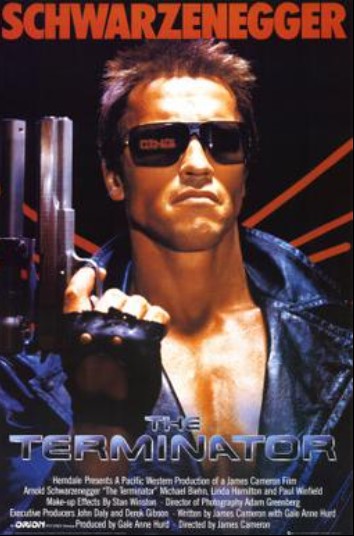
In 1984 a science fiction movie titled The Terminator became a major hit, that it spawned so many sequels. It tells of a story of a cyborg assassin named Terminator who was sent from the future (year 2029) in order to kill a woman who lived in 1984. In 2029 there was a war going on between the cyborgs and the surviving humans (The Resistance). The leader of the resistance group is headed by a man who was the future son of the woman.
In order to re-write the events in 2029, something has to be done back in 1984. If the woman is killed, then there would be no leader of the resistance in 2029. Pretty simple science fiction plot.
But, interestingly, in 2029 humans are fighting against robots and cyborgs. And these machines are created and controlled by – surprise (!) – artificial intelligence, called Skynet.
Together with its sequels, the story would continue with the same plot. Artificial intelligence has gone rogue, it could no longer be controlled by humans. It “became aware” of its existence and power. Skynet ultimately caused humanity’s destruction by starting a global nuclear war between the US and Russia. Billions of people died in an instant.
Terminator 2: Judgment Day

The other day, I revisited and watched the sequel, Terminator 2: Judgment Day on Netflix. I wanted to refresh my memory of its complicated story, considering ChatGPT being in the recent headlines. And my memory was still correct.

In the movies, the AI Skynet, having found its ultimate power, wanted to rule the world. Humans – with their hubris to think that there is no limit to their technological creations – are now the slaves of the Skynet.
“If people cannot write well, they cannot think well, and if they cannot think well, others will do their thinking for them.” (George Orwell)

Could ChatGPT and its successors become Skynet?
What simple existential danger can I think of?
There is already proof how eerily an artificial intelligence can easily accomplish such improbable but simple task. Have you heard of clone music by Drake and The Weeknd? People could not even hear the difference.
As of today, governments, civil society, privacy advocates, and other like-minded individuals and organizations, are still debating on the dangers of using face recognition technology. It is said to infringe on an individual’s privacy and safety.
What about an AI that can clone a human being so easily? Or what if an artificial intelligence soon can recreate a cyborg of some kind, and all it needs is exact data of people today?
What about parents who expose their young kids to the internet?
It has become so popular nowadays for parents to make short videos of their kids and post them on social media platforms. This has been happening since the advent of video apps, but monetizing those clips has added more incentives for parents. Why not?
But, God forbids, what if this trove of information is all that a Skynet-like AI needs to clone or create an exact replica of each human person? Is it funny to imagine that a child today may grow up to be an adult in the near future, and finds himself facing another “being” who looks, speaks, acts, thinks, exactly like him?
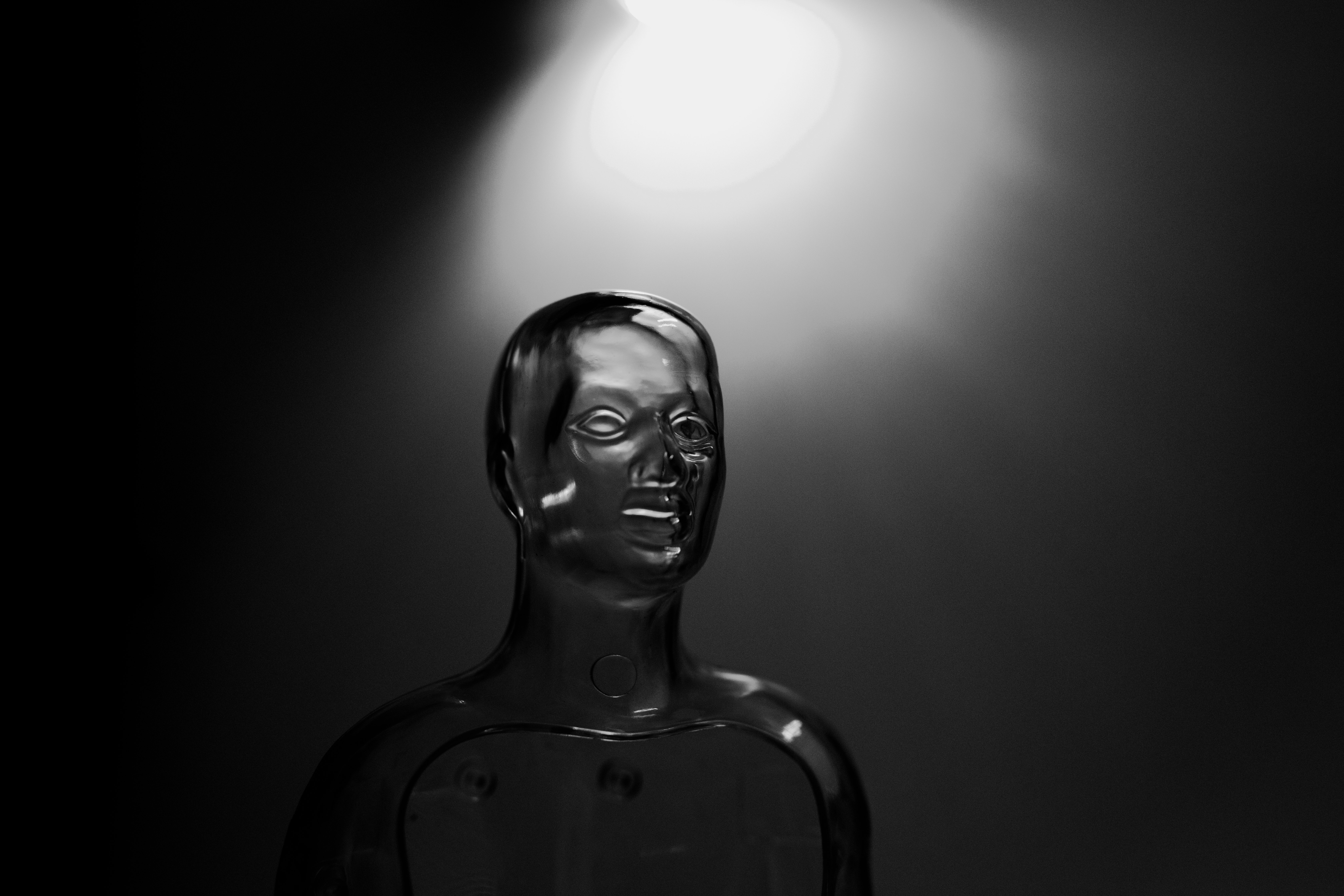
So, is it possible that the constant posting of young children’s everyday life only makes it easier for artificial intelligence to keep track of each child’s development?
The weirdest imagination: If a situation similar to the story of the Terminator movies happens in the future, humans would be fighting against their own replica!
Or am I just being paranoid?
Maybe my imagination is just so twisted. Everything will just turn out fine. Humanity continues to be where it is supposed to be, for the better.
The Radio
Remember when the transistor radio first came out? People panicked the first time they heard human voices coming out of the little box. Some groups spread the conspiracy that the tool of the devil had already come. But, well, look where we are now.
The Television
And when the television appeared, some people in society revolted against its proliferation. Some took it as the end of the radio. A few, again, saw it as a new and more effective tool of Satan. Not only could a human voice be heard from a dumb box, but now real-life images of scantily clad young women are also fully displayed in another dumb tube. But look where we are now.
The Internet
With the advent of the internet humanity was more relaxed. Satan was not in technology, after all. Or, on second thought, Satan has been there right in front of us all this time. He is now more real, in the person of hackers, scammers, sexual predators, and the like.
BUT NOTHING CAN BEAT THE HUMAN MIND – NOT EVEN AI-POWERED CHATBOTS LIKE CHATGPT…AT THE END OF THE DAY, I AM A GREAT BELIEVER IN THE THEORY THAT THE HUMAN MIND IS THE MOST POWERFUL IMAGINATION, MACHINE. (Narayana Murthy – Founder of Infosys)
Who am I to predict?
As for AI, is it that scary? If geniuses like Altman, Musk, Pichai, Wozniak, Hawking, and the like do not have any clear idea as to the direction of AI today, who am I to know?
Questions for you
Let’s go back to the introduction of this article. How do you know that what you are reading right now is written by a human author? Or are you able to distinguish a work by an artificial intelligence, like ChatGPT? (Hint: If this is ChatGPT, I could easily post multiple articles in a day.)
Please share your thoughts by clicking on the underlined Let Me Know Your Thoughts below.

